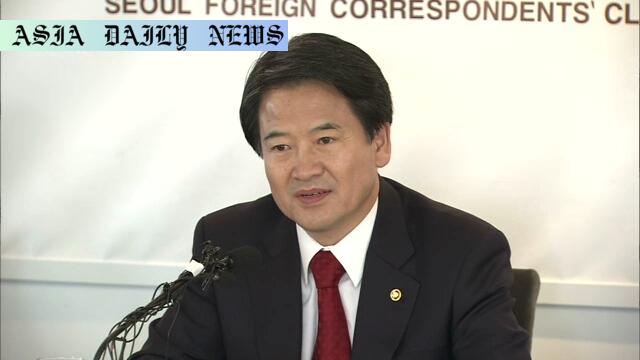Ministers: South Korean president Lee Jae-myung nominated 11 new ministers, reshaping key government positions for the nation.
- South Korea’s President Lee Jae-myung nominated 11 new ministers.
- Cho Hyun was chosen as foreign minister, emphasizing his broad diplomacy expertise.
- Ahn Gyu-back was selected as defense minister, marking a historic first civilian nomination in six decades.
- Chung Dong-young was nominated again for unification minister.

South Korea’s Bold Ministerial Realignment
On Monday, South Korea’s President, Lee Jae-myung, unveiled his government’s sweeping new cabinet line-up by nominating 11 individuals to crucial ministerial positions. This announcement signals a pivotal shift in the country’s governance as it aims to meet new challenges and opportunities. The carefully curated appointments touch upon critical areas such as diplomacy, defense, and national unification, underscoring a strategic emphasis on experience and reform.
Cho Hyun: The New Face of Foreign Relations
Among the standout nominations was Cho Hyun, who will be stepping into the role of foreign minister. With an impressive background that spans service as the first vice foreign minister and a plethora of overseas diplomatic assignments, Cho is well-versed in the intricacies of multilateral negotiations. His profound knowledge of trade issues and diplomatic policy ensures that South Korea will be well-represented on the global stage. The presidential office emphasized that Cho’s experience will play a decisive role in navigating international relations and enhancing South Korea’s global standing.
Historic Nomination: Ahn Gyu-back as Defense Minister
Adding a historic touch to the appointments, veteran politician Ahn Gyu-back has been nominated as defense minister—the first civilian in more than sixty years to fill this post. Ahn’s nomination is a departure from the country’s tradition of military personnel heading the defense department, signaling a shift towards democratic and civilian oversight of military affairs. This decision comes as South Korea finds itself at the crossroads of regional security dynamics, with growing tension in the Korean Peninsula and the need to modernize its defense policies.
Chung Dong-young: A Steady Hand in Unification Efforts
Another key nomination is that of Chung Dong-young, who has been tapped to reprise his role as unification minister. Having previously served in this capacity from 2004 to 2005, Chung brings a wealth of expertise and continuity to the position. His appointment signals South Korea’s ongoing commitment to reconciliation and dialogue with North Korea, even in the face of numerous challenges. With Chung’s experience at the helm, the South Korean government is poised to pursue a balanced and strategic approach to inter-Korean relations.
The Road Ahead: Confirmation Process and Beyond
As with any governmental reshuffle, the nominations will undergo scrutiny and hearings in the National Assembly before they are officially confirmed. This process will allow lawmakers to assess the qualifications and plans of the nominees, ensuring transparency and accountability. Once approved, the new ministers will be tasked with implementing President Lee’s vision for a progressive, resilient, and globally competitive South Korea. Their performance will undoubtedly shape the trajectory of the nation in critical areas, from diplomatic relations to national defense and inter-Korean initiatives.



Commentary
The Significance of Ministerial Reshuffles
A ministerial reshuffle in any government is an event of significant importance, not just for the administration but also for the aspirations and expectations of the population. South Korean President Lee Jae-myung’s recent nominations reflect a bold and calculated approach to leadership. By choosing individuals with diverse backgrounds and a mix of experience, the president demonstrates his commitment to addressing the multifaceted challenges facing the country. This reshuffle could be a harbinger of transformative policies that aim to make South Korea more adaptive to modern-day complexities.
Progressive Step in Defense Leadership
One of the most striking aspects of this reshuffle is the nomination of Ahn Gyu-back as defense minister. This decision not only breaks a six-decade-long tradition but also underscores a shift toward civilian governance in military matters. Such a move may pave the way for more inclusive and transparent defense policies, fostering trust between the military and the general public. It’s a courageous step, and how it unfolds will likely be watched closely by both allies and rivals in the region.
Challenges and Opportunities in Foreign Relations
With Cho Hyun as the new foreign minister, South Korea seems prepared to strengthen its diplomatic clout. His extensive experience in multilateral settings and trade negotiations provides a solid foundation for advancing the country’s interests on the global stage. However, this role comes with its own set of challenges, especially amidst growing geopolitical tensions in East Asia. Successfully navigating these waters will require not just experience but also adaptive strategies and consistent communication with international allies and neighbors.